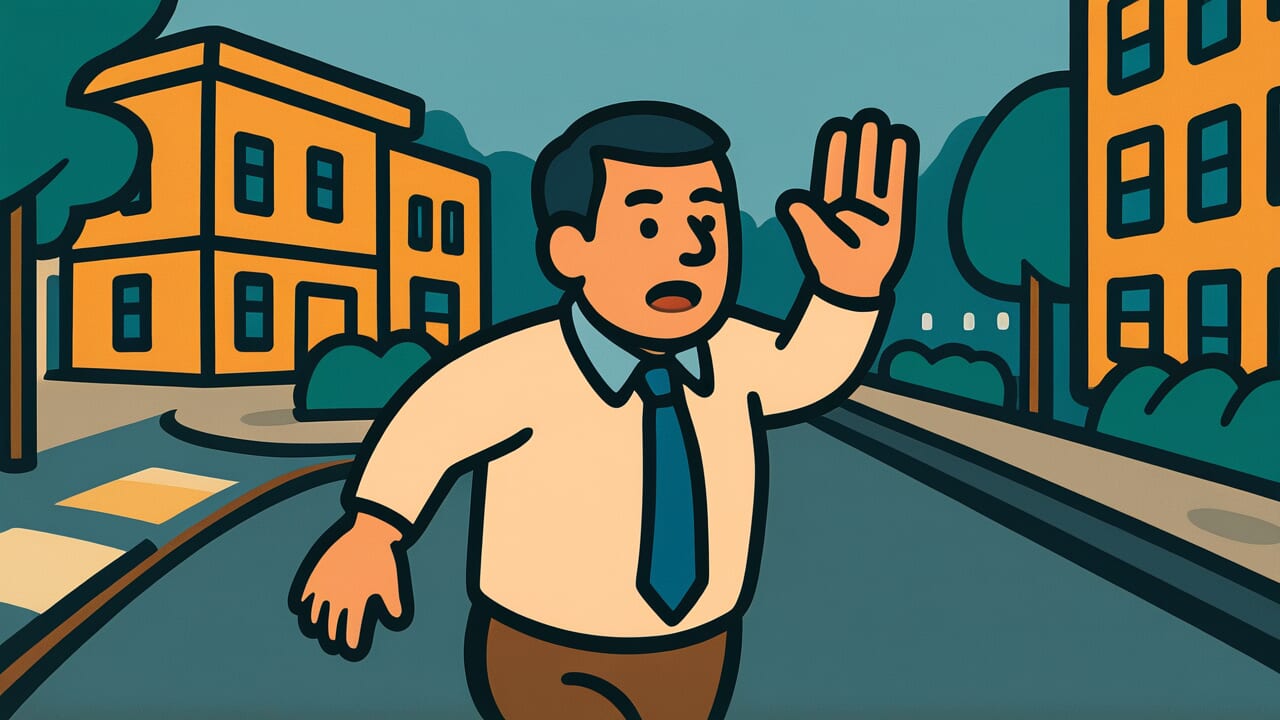How to Read “Above all, no trouble with the neighbors”
Tokaku kinjo ni koto nakare
Meaning of “Above all, no trouble with the neighbors”
This proverb teaches that you should avoid conflict with people close to you and handle things peacefully. It emphasizes the importance of being careful not to let disagreements escalate into major conflicts with people you see every day.
This includes neighbors, coworkers, and others you interact with regularly. Even when you disagree with them, it’s wise to show consideration and avoid big confrontations.
A temporary clash with someone far away has limited impact. But discord with people close to you brings continuous stress to your daily life.
Rather than getting emotional over small things and ruining relationships, it’s better to compromise a little and maintain peaceful connections. In the long run, this makes your own life more comfortable.
Even today, this wisdom remains valuable for relationships with apartment neighbors and workplace colleagues.
Origin and Etymology
The exact source of this proverb is unclear, but its structure reveals an interesting background.
“Tokaku” is an old expression meaning “in any case” or “above all else.” It shows a strong intention that something should be prioritized, regardless of right or wrong.
“Kinjo” (neighbors) refers not just to geographical closeness but to all close relationships with people you see regularly. In Edo period tenement housing and farming villages, relationships with neighbors formed the foundation of life itself.
People needed to help each other in all situations – managing water, watching for fires, and celebrating life events together.
“Koto nakare” means “don’t cause trouble” or “avoid conflict.” This expression has been used since ancient times and reflects Japanese cultural values that emphasize peace.
This proverb expresses the life wisdom that relationships with people you see every day should be kept peaceful above all else. It likely emerged as practical advice for living in communal society, similar to the saying that a nearby stranger is more important than a distant relative.
Usage Examples
- The noise from next door bothers me, but “above all, no trouble with the neighbors” – I won’t complain directly
- I don’t agree with my senior colleague’s opinion, but “above all, no trouble with the neighbors,” so I handled it peacefully
Universal Wisdom
Behind this proverb’s long history lies a fundamental human contradiction. We all want to assert our own correctness, yet we also wish to live comfortably within stable relationships.
What’s interesting is that this proverb doesn’t say “don’t fight.” It specifically says “don’t fight with neighbors.” This shows that our ancestors deeply understood there are times to fight and times to back down.
With distant opponents, you can have a one-time confrontation and be done. But conflict with people you see daily leaves a bad aftertaste that continues, whether you win or lose.
Humans are social creatures. No matter how individualistic modern society becomes, we cannot live without relating to others. And the closer the relationship, the more it affects every corner of daily life.
Morning greetings, taking out trash, passing in hallways – whether these casual moments feel pleasant or awkward greatly changes your quality of life.
This proverb teaches us that protecting daily peace is actually harder and more valuable than pursuing justice.
When AI Hears This
Analyzing neighborhood relationships mathematically reveals surprising rationality. In game theory’s “Prisoner’s Dilemma,” mutual betrayal is optimal for one-time interactions, but the situation completely changes in “repeated games” where you face the same opponent multiple times.
In political scientist Axelrod’s famous computer tournament, the most successful strategy was “tit-for-tat.” This simple rule cooperates first, retaliates if betrayed, but immediately forgives when the opponent returns to cooperation.
Aggressive strategies and constant betrayal always lost in the long term. In endless relationships, moderate responses like “an eye for an eye” become the mathematical winning condition.
Neighborhood relationships are exactly this kind of endless repeated game. Unless you move, you’ll see the same people tomorrow and the day after. In this context, “not causing trouble” isn’t kindness – it’s the correct result of cold probability calculations.
The benefits from one-time victory are far smaller than cumulative benefits from long-term cooperation.
What’s fascinating is that this strategy only works with the premise that “you’ll keep meeting in the future.” That’s why people become colder with strangers or in one-time encounters. Being kind to neighbors is actually an investment in your future self.
Lessons for Today
What “Above all, no trouble with the neighbors” teaches modern people is the importance of “the courage not to fight.” In an era where you can easily express opinions on social media, the strength to choose silence is increasingly necessary.
Especially in inescapable relationships like workplaces, apartments, and local communities, you need wisdom to resolve things peacefully while saving face, rather than wielding correct arguments. This isn’t weakness – it’s mature judgment with long-term perspective.
However, this doesn’t mean enduring unreasonable treatment forever. What matters is judging which battles to choose – setting priorities.
If you react to every small daily frustration, you won’t have energy left to fight for truly important things.
Look back at your daily life. Are you overreacting to neighbors’ trivial words or colleagues’ small attitudes? You could use that energy for more valuable things.
Protecting peaceful daily life is actually a very active and wise way to live.



Comments